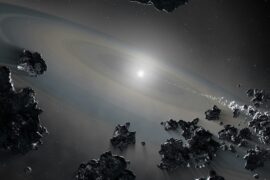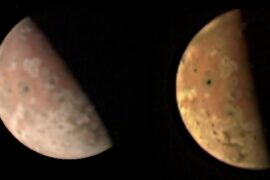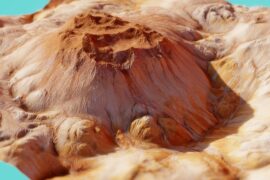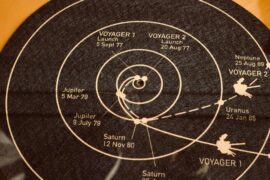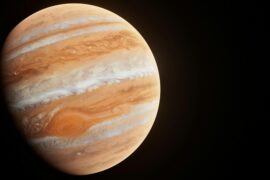Saturn is located 1.5 billion kilometers away from Earth. There are two other planets and an asteroid belt between us and the ringed planet.
The first instinct when thinking about it would be that Saturn and Earth do not affect each other too much. But that’s not true at all. Even with such large distances between them, all the planets in the Solar system are connected to each other.
Saturn is important to Earth because this planet and Jupiter helped a lot in shaping the Solar system as we know it. If these two giants didn’t exist, life on our planet might not have been possible.
In this article, I’ll explain the reasons why Saturn is important to Earth. Let’s get started.
1. Saturn made life on Earth viable
Every star system has a habitable zone. Sometimes it is also referred to as the goldilocks zone. This is the area where a planet can support liquid water on its surface. As a result, it is also the area where life as we know it can exist.
Obviously, in our Solar system, this is the area where our planet is located at.
But the habitable zone is not very wide. Move Earth only 5% more away from the Sun and would be out of it. This is the reason why neither Venus nor Mars can support liquid water even though they are relatively close.
This is where Saturn comes into play. Because the gravity of all planets interacts with each other and affects their orbits. Especially the bigger ones, like Saturn.
Earth’s orbit is almost circular. It only varies by 2% at its more distant point. This keeps Earth at an almost stable distance from the Sun all year round. As a result, the planet is always inside the habitable zone.
We can thank Saturn for that.
Saturn just happens to have the exact size and it is in the perfect spot. If Saturn was just 10% closer to the Sun, or if it was just slightly smaller, Earth’s orbit would change. It would become more elongated.
Because of this, Earth could fall out of the habitable zone for months every year. Life might not have been able to withstand the changing conditions for such a long period. And maybe the first organisms wouldn’t have been able to survive.
It’s mind-blowing to think that such small changes in the Solar system could have changed our fate.
reference: The role of dynamics on the habitability of an Earth-like planet
2. Saturn saved Earth from asteroids
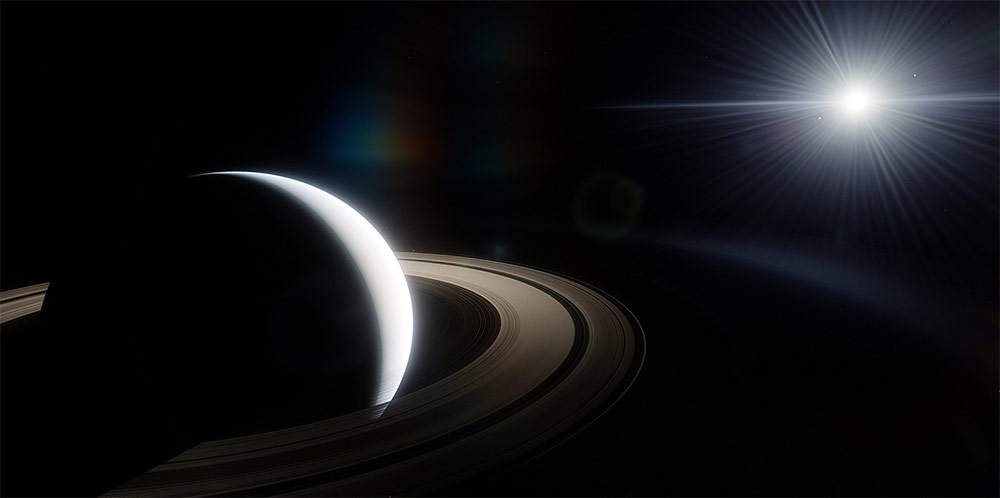
The Moon was created because a huge asteroid hit Earth.
At least that’s the more likely theory we have.
But that impact could have been one of many more. Earth could have experienced several of those quite often during the early days of the Solar System. But that did not happen, and it was thanks to Saturn.
Many people believe having gas giants like Jupiter and Saturn protects Earth from asteroids by working as a shield. That’s not really how it works. While Saturn and Jupiter are huge from our point of view, they are tiny in universal scales. They are not big enough to cover enough area to function as a barrier.
So, if that’s not how it happens. How does Saturn protect Earth from meteorites?
Saturn protected Earth from asteroid impacts indirectly by changing the angular momentum of the whole Solar system due to its size. Of course, Jupiter helped too.
As a result, a lot of stray objects on the inside zone of the Solar system got ejected out of the Solar system instead of being caught by the Sun’s gravity or some of the forming planets.
Another impact like the one that created the Moon, or even a much smaller one, would have represented an enormous danger to the habitability of the planet.
3. Saturn may have saved the whole Solar System
Jupiter devoured a planet 10 times larger than Earth once. This happened about 4.5 billion years ago, and it could have happened again, and again.
Gas giants the size of Jupiter can gravitationally catch nearby objects, including even smaller planets. By doing this they can gain so much mass their core collapses unto themselves, turning them into stars. As their gravity increases, they can also start pulling other planets.
A theory suggests Saturn kept this from happening in our Solar system.
Having a second gas giant like Saturn as its neighbor gravitationally balanced Jupiter, stopping it from becoming bigger and bigger and possibly from devouring some or all of the other planets in the Solar system, including Earth.
reference: Planet 10 times Earth’s mass may have smacked Jupiter long ago
Summary
- Saturn helps keep Earth in the habitable zone of the Solar system
- Saturn ejected asteroids from the inner Solar system, potentially saving Earth from many impacts
- Saturn kept Jupiter’s gravity in check and stopped it from getting bigger
Enjoyed this article?
Get daily 10-minute PDFs about astronomy to read before bed!
Sign up for our upcoming micro-learning service where you will learn something new about space and beyond every day while winding down.


